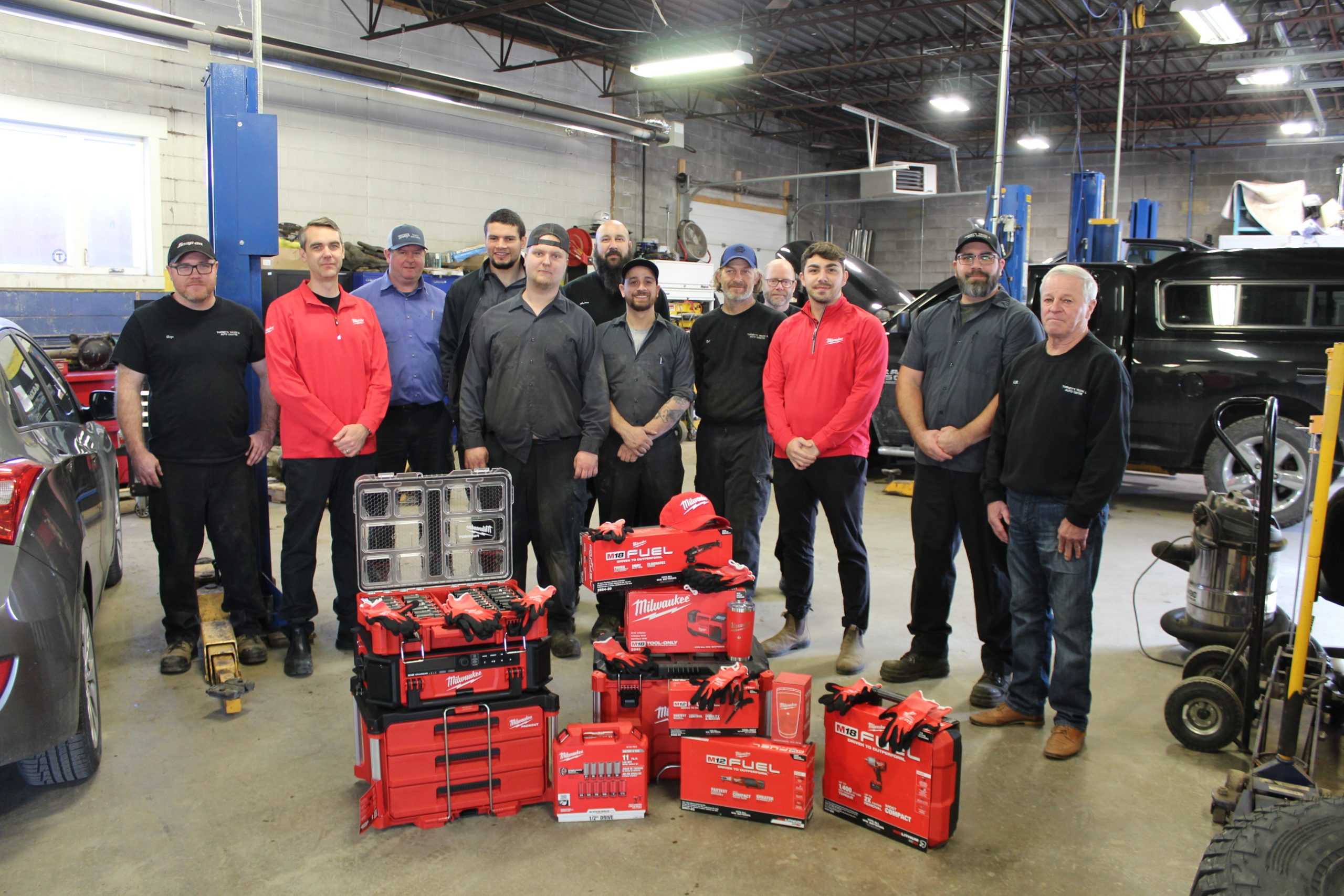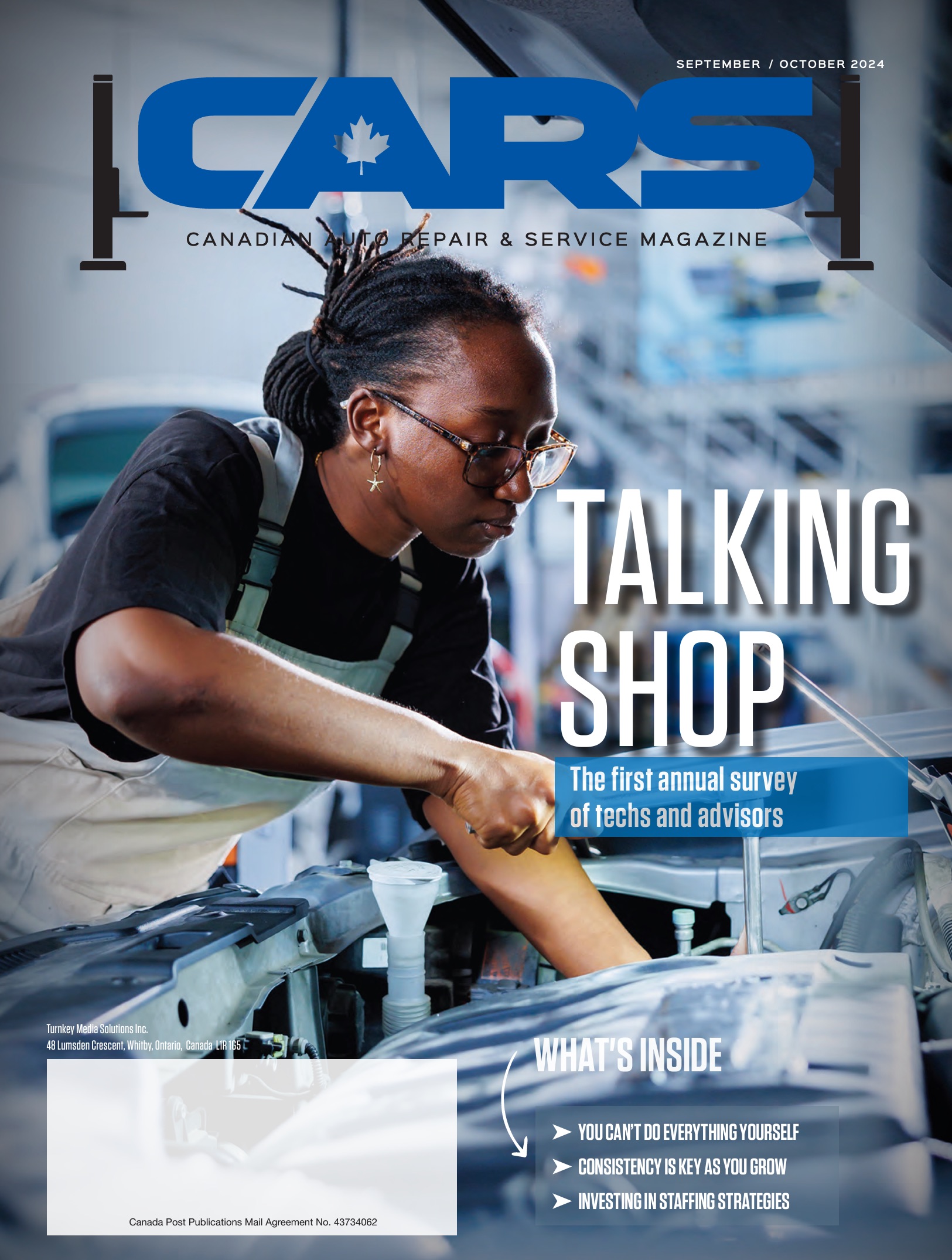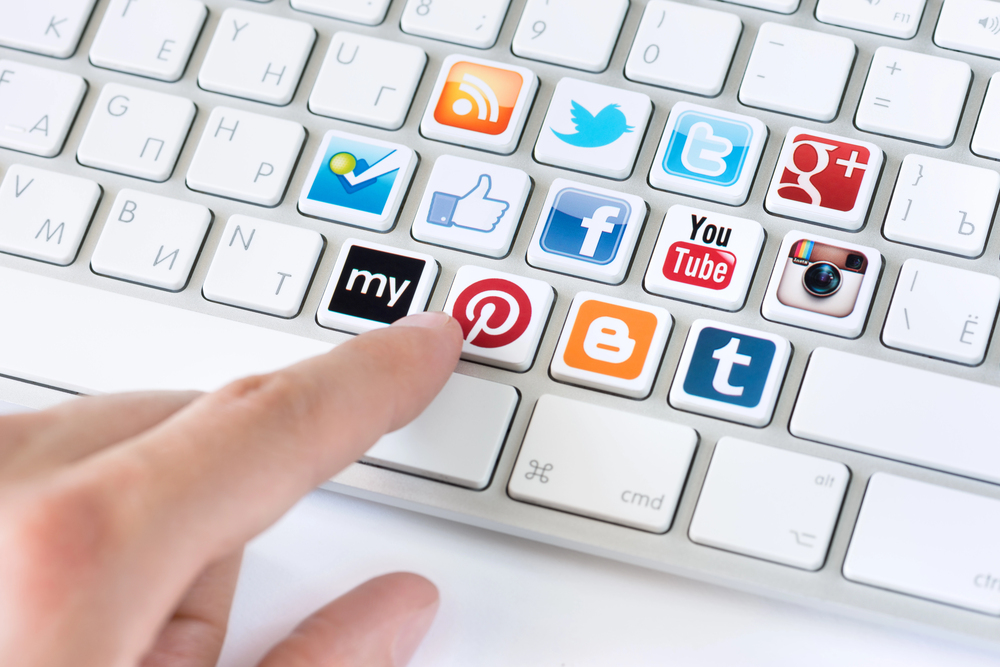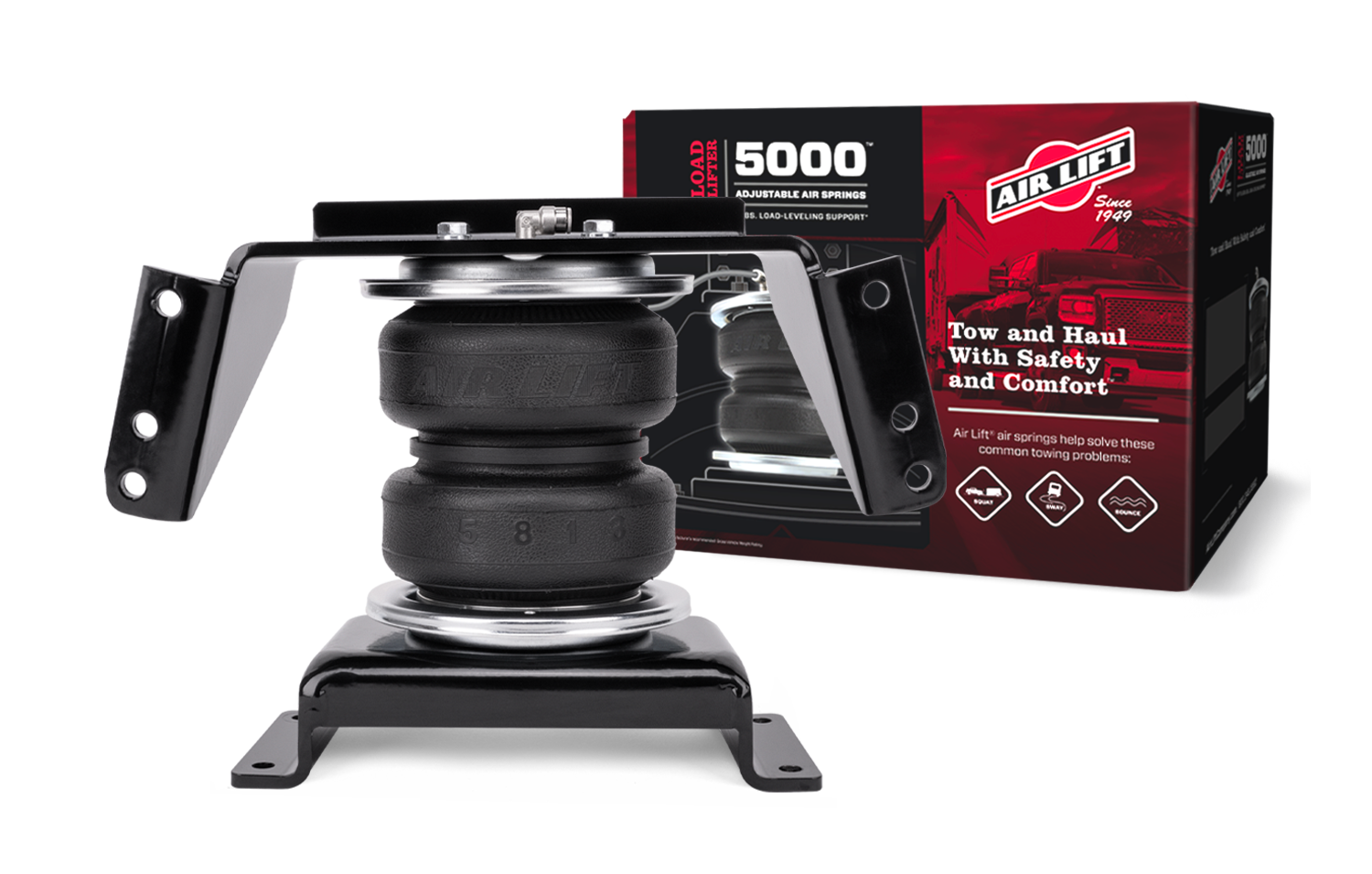
Art Turney’s Garage doesn’t spend a penny on advertising. If you were to Google it, you won’t find a website. But you will see a Google business profile.
And on the profile, you’ll see a score of 4.9 out of five stars.
“Google Reviews is everything,” said Mike Howard, manager of garage operations at Art Turney’s Garage.
Oftentimes, when a new customer is asked how they found the shop, the answer is almost always because of the reviews on Google.
It’s that word of mouth — digital and in the real world — that has given Art Turney’s Garage a loyal following in Peterborough, Ontario. And it’s the 2023 Shop of the Year, sponsored by Milwaukee.
The shop prides itself on customer relationships and providing an outstanding customer experience.
For example, when a customer doesn’t understand the repair needed or has questions about it, Howard will bring his technicians to the counter to explain exactly what’s happening.
“The mechanics are really good. I’ll just say, ‘Well, let’s talk to your mechanic.’ So the mechanic will come out and they’ll walk them through the process,” he explained.
Or if it’s something that can be explained through a quick video, he’ll open YouTube and show them a video of what’s taking place.
“So that’s my go-to — the mechanics first and then if it’s something simple, I’ll show them a video,” Howard said.
“The mechanics are really good. I’ll just say, ‘Well, let’s talk to your mechanic.’ So the mechanic will come out and they’ll walk them through the process.”
View this post on Instagram
History
The business started around 1930 as Turney Brothers Garage in Colbourne, Ont. Bill Turney moved the business to Peterborough before handing the business over to his son, Art.
He died in 1982 but passed the business on to his son John who sold the business in 1989 to Jim McWilliams, owner of local moving company McWilliams Moving & Storage — who happened to be the first customer when the shop opened a new location. The shops started out repairing the McWilliams fleet and expanded from there. Then they started doing other company’s fleet vehicles.
Over time, customers getting their fleets repaired at Turney’s wanted their personal vehicles to get the same top-notch service, growing the business further. The Turney family continues to have their vehicles serviced at the shop to this day.
Because the shop is a division of a larger company, it’s Howard who oversees the operation rather than the owner. His background is in warehouse and distribution and managing fleets. He joined Art Turney’s Garage about six years ago.
But he’s not a technician. He doesn’t have formal training under the hood. He’s a business person. He brought in two foremen to lead the technical aspects.
“Fortunately, I have a strong crew that has helped me navigate the waters,” Howard said. “So they’re really good, honest and forthright and helped me out with that. They bring their auto and truck mechanical skills to the table and I manage the business and we make it work.”
Howard felt it was important to get some technical know-how in the bays. He reciprocates by giving them insights on the business side of things. “You have to have the business side to run a shop,” he said.
 Business philosophy
Business philosophy
One of the marks of the Shop of the Year is implementing new systems or looking at new ways to tackle age-old challenges.
Art Turney’s Garage understands the challenges of attracting talent not to just its shop but to the industry as well.
That’s why they put an emphasis on training and work-life balance.
The shop offers a lot of freedom to its staff as to how they want to work. While they have to be in the shop during core hours, they can be flexible with their time and days — and so long as they’re putting in the hours.
“We’re flexible to that. So if they want to start at six in the morning or seven in the morning or eight in the morning and work their eight hours, we’re good with that. We just want them here in the core hours,” Howard said. “It’s a challenge finding, retaining staff and a lot of people have a lot of different needs. They have kids, they have families, various life challenges that they have to adapt to. And the guys have responded well to that.”
Hear more: Click here to listen to the Enhanced Media segment featuring Mike Howard
They have one person who has always been on a four-day schedule — another who just retired worked three days. So flexibility has always been a keyword around the shop. And when one employee asked about doing a four-day workweek, it became an official way of doing business.
Howard picks who works what days based on seniority. So the tenured staff can choose if they want the Monday or Friday off. Then it opens up to the res. If someone wants Wednesday off, they can have it.
Even though the shop advertises its hours as 8-5, people are working away in the bays before and after those times. Usually, there’s someone here most days at 6 a.m., and always by 7 a.m. Then there are some who are still plugging away after the shop is closed.
“Our uniqueness is: If we can help the guys out in any way, we try to do that,” Howard said.
The shop also has a breakfast meeting every Thursday morning that is well received.
“It’s not huge, but the guys seem to appreciate it,” Howard said. “We sit down and have a breakfast and sometimes we have good business conversations and other times we just talk about shop stuff.”
 Tools and training
Tools and training
If a technician needs a new tool or something needs to be updated, Howard is receptive.
“I lean heavily on the staff to tell me what their needs are. If it’s imperative to the smooth running of the shop, and it’s necessary for the diagnostics or to do the repairs, then it has to be done regardless,” Howard said. “You have to stay on top [of that]. You got to have tools to fix cars.”
He has his team get the training they need — but he finds that being an independent shop presents challenges in terms of opportunities. Plus, being almost two hours outside of Toronto, he feels that being in a smaller centre doesn’t allow for the same training options.
And with electric vehicles on the horizon, he’s eager to make sure his team can handle upcoming requests.
“Moving forward into the EV world, [training] seems to be non-existent, at least that I’ve found so far,” Howard said. “And I’m concerned — I know it’s probably 10 years out or whatever — but I’m concerned that the younger guys in the trade are going to possibly have a challenge to adapt.”
“It’s a professional trade. And these guys are highly qualified and they’re getting recognized for that. And I think that’s exciting that they’re finally getting the recognition they deserve.”
Looking ahead
Speaking of the future, Howard is aware of trends and demands from the younger generation of customers like texting or online booking. While he hasn’t had many or any requests for such services, he knows he soon will.
“That’s something that the future is going to bring in. The younger people are going to expect and want that. Our clientele right now isn’t,” he observed.
The shop has digital scheduling so the foundation is in place, Howard pointed out. “All the tools are there to facilitate it. We have the capabilities to do it, but we just haven’t promoted it. So I think we just need to open it up to the customer.”
On the topic of customers, Howard believes the same beliefs and expectations are still in place: They want the job done well.
“They want a worry-free job,” he said. “They don’t want to have to ask questions afterwards. And they want it done in a timely manner at a fair price. They don’t necessarily want a cheap price. They want a fair price. They want value for the money. And that’s I think that’s been the expectation forever.”
The key is value for money. Customers understand that things have gotten more expensive. They’re generally fine with that.
But added to the aftermarket’s challenge is the lack of available talent, partly due to low wages.
“And in order to attract and retain staff, we’ve had to increase wages, which is due. I generally think the whole business, the whole trade is underpaid. And we’ve increased wages, trying to remain competitive with our competition. And, in turn, therefore, we had raised door rates and the price parts have gone up, and everything’s gone up. And it’s all part of keeping the lights on and trying to make a profit,” Howard said.
“It’s still a bit of a sticker shock, but I totally get it. Once you educate the customers, they’re on board. I don’t think we’ve ever, to the best of my knowledge, we’ve never lost a customer and then due to our prices — and we have raised them considerably post-COVID.”

It’s that lack of talent that keeps Howard up at night. Well, one of the things.
Margins are another. For the work that goes into fixing a vehicle, he doesn’t believe the profit matches that effort.
“You look back on it and go, ‘Wow, that was a lot of work to get there,” Howard said.
And the future of the industry is another worry, particularly around electrification. While he admitted being on the older end of the spectrum means he may never have to deal with the technology, he wonders what’s in store for the younger crew.
“The 20-year-olds might adapt; they’ll come up with it. It’s going to be the 40-year-old guys that are going … to have the problem,” he predicted.
Top opportunities
The fact that the role of the technician is gaining more respect and the auto repair business is developing a better understanding with customers are two things that Howard is excited about.
“I think that people more and more are recognizing that garages are here to make money and they’re no different than any other business,” Howard said.
He pointed to more people recognizing that this industry can be more like a dentist’s office where they charge you for all of their time. It tied back into his concerns of profit margin — capturing all of the time a shop spends working on a vehicle and recognizing the education and training a technician has done to be able to return the vehicle to proper working order is critical.
“It’s a professional trade. And these guys are highly qualified and they’re getting recognized for that,” Howard said. “And I think that’s exciting that they’re finally getting the recognition they deserve.”
Advice
The winner of the Shop of the Year is always asked for their advice to their peers. For Howard, it was simple: Listen to your people. They’re out in the field. It’s their boots on the ground. They hear more than the people in charge.
“And, also, they know their trade,” Howard said. “They know what they need to do the job. So they’re the eyes and ears and knowledge.”
This article originally appeared in the December 2023 issue of CARS magazine.





 Business philosophy
Business philosophy Tools and training
Tools and training






Leave a Reply